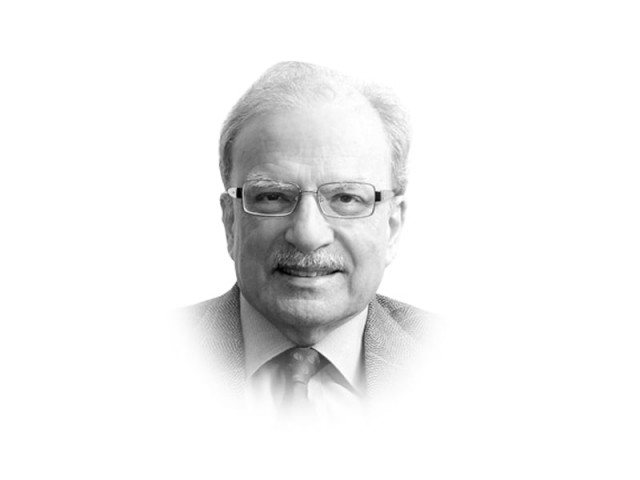Promoting human resource development
Money for education and health, if well spent, will also increase the confidence of the donor community

The writer is a former caretaker finance minister and served as vice-president at the World Bank
Each time there is news of the country making some large investment in capital-intensive projects, there is criticism that poor use is being made of scarce public sector resources. Rather than spending large sums on roads, bridges and underpasses, Pakistan should be making additional resources available for human resource development. The country ranks very low in terms of the proportion of its gross domestic product committed to education and health. But is the availability of additional finance the answer to the problem?
Additional resource commitment will not work unless a serious effort is made to improve the way funds are spent. This was amply demonstrated by a World Bank effort in the 1990s, when it launched the multi-billion Social Action Programme (SAP) to promote human development. The SAP failed. A significant number of the additional staff hired to promote education and health ended up working in the offices of politicians as political workers. Once this became apparent, the Bank withdrew its support.
Drawing lessons from SAP, the donor community is now financing a well thought-out programme that will begin with a pilot project in Sheikhupura district: Smart Procurement, Supply Chain and Distribution of Medicines at Government Health Facilities. Funding has been provided by the UK Department for International Development under the Sub-national Governance Programme, which helps provincial and district governments improve governance and accountability, ensure efficient provision of public services, and target their budgets at the services citizens need most. This project is being carried out by a consortium of institutions led by the Lahore-based Institution of Public Policy, Pakistan Administrative Service Alumni Research Centre, E2E Systems Solutions and the Sheikh Jahangir Citizen Community Board of Sheikhupura.
Investigations conducted before the project was launched revealed the extent of leakage that occurs in the procurement of drugs and their dispensation. Absenteeism of health staff, non-availability of essential drugs and equipment, lack of inventory and stock management, and, absence of monitoring and enforcement mechanisms were added problems. These problems are aspects of the widespread corruption in the delivery of social services. Dealing with them will increase the amount of resources that effectively reach the citizenry.
The project will put in place an automated inventory control system, reduce information gaps in inventory management, and generate disease early information. The World Health Organisation has established a Disease Early System in Pakistan. This will provide timely data not only in advance of a disease that may strike and inflict heavy damage, but it will also help to stock required medicines and equipment drawing upon the disease profiles of different places.
Last year, I was taken to see a privately funded multi-purpose social delivery system in a village near Sher Garh in central Punjab. A girls and boys school, a library and a clinic operated from the basement of a mosque. The purpose of using the mosque for providing social services to the community was to give a strong message that religious observance and instruction should not be decoupled from general welfare. I asked those operating the clinic about the incidence of diseases they had to deal with. I was told that the most common problem was related to such water-borne ailments as diarrhoea. Children were more affected than older people. This was a real problem. As pointed out by the president of the World Bank during a recent visit to the country, child malnutrition in the country was increasing at an alarming rate and causing stunted development.
However, I was surprised to learn that snake bites were the second most serious problem. While the clinic was well-stocked with drugs needed for stomach problems, it had a serious shortage of the medicines needed for snake venom. A system such as the one being tested in Sheikhupura would have alerted the health officials that they have to equip their clinics with medicines needed to cure health adversities resulting from snake bites.
Once results come in from the Sheikhupura pilot project, it is the intention of the Government of Punjab to introduce the system being tested to other districts in the province. The programme will have a number of benefits. It will increase the confidence of the province’s development authorities that the money they are spending is being put to good use. Bridges and highways are there for all to see once they have been constructed. Social improvements take time to produce results and become visible only through data collected with care. That money for education and health, if well spent, will also increase the confidence of the donor community that if it gets involved, the mistakes made in implementing the World Bank-funded SAP will not be repeated.
Published in The Express Tribune, April 4th, 2016.
Like Opinion & Editorial on Facebook, follow @ETOpEd on Twitter to receive all updates on all our daily pieces.















COMMENTS
Comments are moderated and generally will be posted if they are on-topic and not abusive.
For more information, please see our Comments FAQ